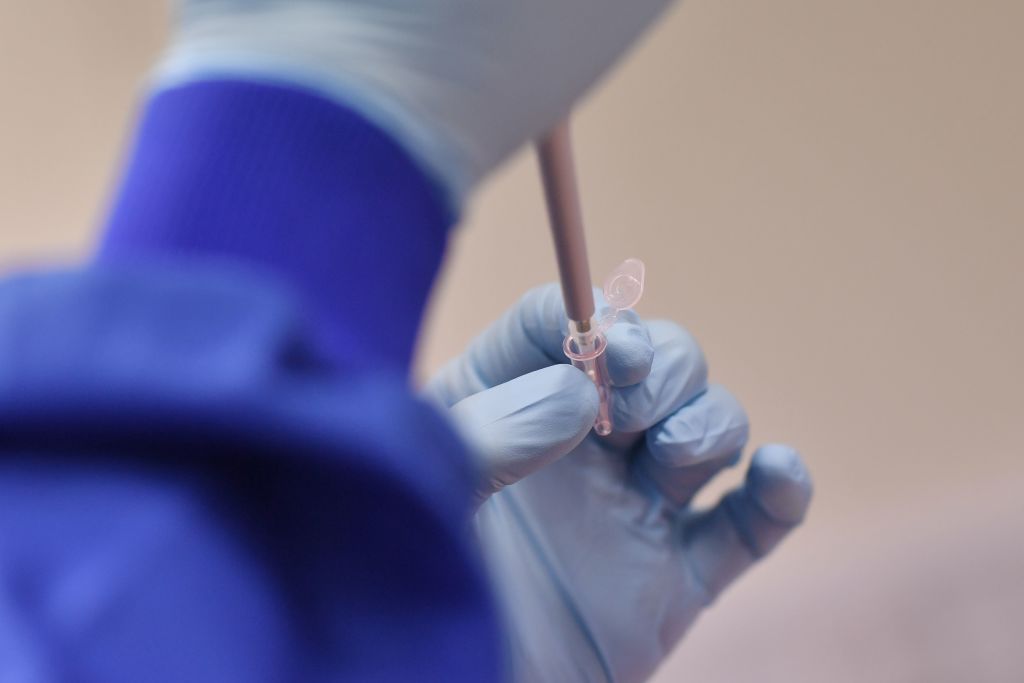A U.K. study suggests an annual coronavirus booster shot may be necessary


A free daily email with the biggest news stories of the day – and the best features from TheWeek.com
You are now subscribed
Your newsletter sign-up was successful
Early this year, reports of people in South Korea testing positive for the coronavirus again after apparently recovering set off alarm bells. The concern largely subsided, however, when the Korean Centers for Disease Control and Prevention determined the positive tests weren't reinfections.
Now, though, a new study from King's College in London suggests people may lose their COVID-19 immunity within months. The study analyzed the immune response of more than 90 patients and health-care workers, with blood tests revealing 60 percent developed a strong antibody response during their infections, but only 17 percent retained the same potency three months later. In some cases, antibody levels weren't detectable.
Along those lines, Vox reported a case in which a patient tested positive for the virus three months after their initial infection. While the doctor in the case noted it's possible a single infection lasted that long, he's doubtful. Plus, other coronaviruses that cause common colds don't lead to long-term immunity, so some experts think the novel virus is headed down that path.
The Week
Escape your echo chamber. Get the facts behind the news, plus analysis from multiple perspectives.

Sign up for The Week's Free Newsletters
From our morning news briefing to a weekly Good News Newsletter, get the best of The Week delivered directly to your inbox.
From our morning news briefing to a weekly Good News Newsletter, get the best of The Week delivered directly to your inbox.
The results of the study indicate it could be challenging to develop herd immunity or a one-and-done vaccine, but there are several important pieces of information to process. The King's College participants haven't been reinfected, so it's not a sure thing it can even happen. Similarly, the Vox anecdote is a may not be representative, and there haven't been similar reports out of countries hit by the virus earlier than the U.S.
Secondly, Prof. Robin Shattock of Imperial College London said even if reinfection is possible, subsequent cases would likely "be less severe" because people "will still retain immune memory."
Lastly, this wouldn't mean there's no hope for a vaccine, but rather, like the flu, an annual coronavirus booster shot may be necessary for "sustained levels of protective antibodies." Read more at The Guardian.
A free daily email with the biggest news stories of the day – and the best features from TheWeek.com
Tim is a staff writer at The Week and has contributed to Bedford and Bowery and The New York Transatlantic. He is a graduate of Occidental College and NYU's journalism school. Tim enjoys writing about baseball, Europe, and extinct megafauna. He lives in New York City.
-
 Health insurance: Premiums soar as ACA subsidies end
Health insurance: Premiums soar as ACA subsidies endFeature 1.4 million people have dropped coverage
-
 Anthropic: AI triggers the ‘SaaSpocalypse’
Anthropic: AI triggers the ‘SaaSpocalypse’Feature A grim reaper for software services?
-
 NIH director Bhattacharya tapped as acting CDC head
NIH director Bhattacharya tapped as acting CDC headSpeed Read Jay Bhattacharya, a critic of the CDC’s Covid-19 response, will now lead the Centers for Disease Control and Prevention
-
 Trump HHS slashes advised child vaccinations
Trump HHS slashes advised child vaccinationsSpeed Read In a widely condemned move, the CDC will now recommend that children get vaccinated against 11 communicable diseases, not 17
-
 FDA OKs generic abortion pill, riling the right
FDA OKs generic abortion pill, riling the rightSpeed Read The drug in question is a generic version of mifepristone, used to carry out two-thirds of US abortions
-
 RFK Jr. vaccine panel advises restricting MMRV shot
RFK Jr. vaccine panel advises restricting MMRV shotSpeed Read The committee voted to restrict access to a childhood vaccine against chickenpox
-
 Texas declares end to measles outbreak
Texas declares end to measles outbreakSpeed Read The vaccine-preventable disease is still spreading in neighboring states, Mexico and Canada
-
 RFK Jr. shuts down mRNA vaccine funding at agency
RFK Jr. shuts down mRNA vaccine funding at agencySpeed Read The decision canceled or modified 22 projects, primarily for work on vaccines and therapeutics for respiratory viruses
-
 Measles cases surge to 33-year high
Measles cases surge to 33-year highSpeed Read The infection was declared eliminated from the US in 2000 but has seen a resurgence amid vaccine hesitancy
-
 Kennedy's vaccine panel signals skepticism, change
Kennedy's vaccine panel signals skepticism, changeSpeed Read RFK Jr.'s new vaccine advisory board intends to make changes to the decades-old US immunization system
-
 Kennedy ousts entire CDC vaccine advisory panel
Kennedy ousts entire CDC vaccine advisory panelspeed read Health Secretary RFK Jr. is a longtime anti-vaccine activist who has criticized the panel of experts
